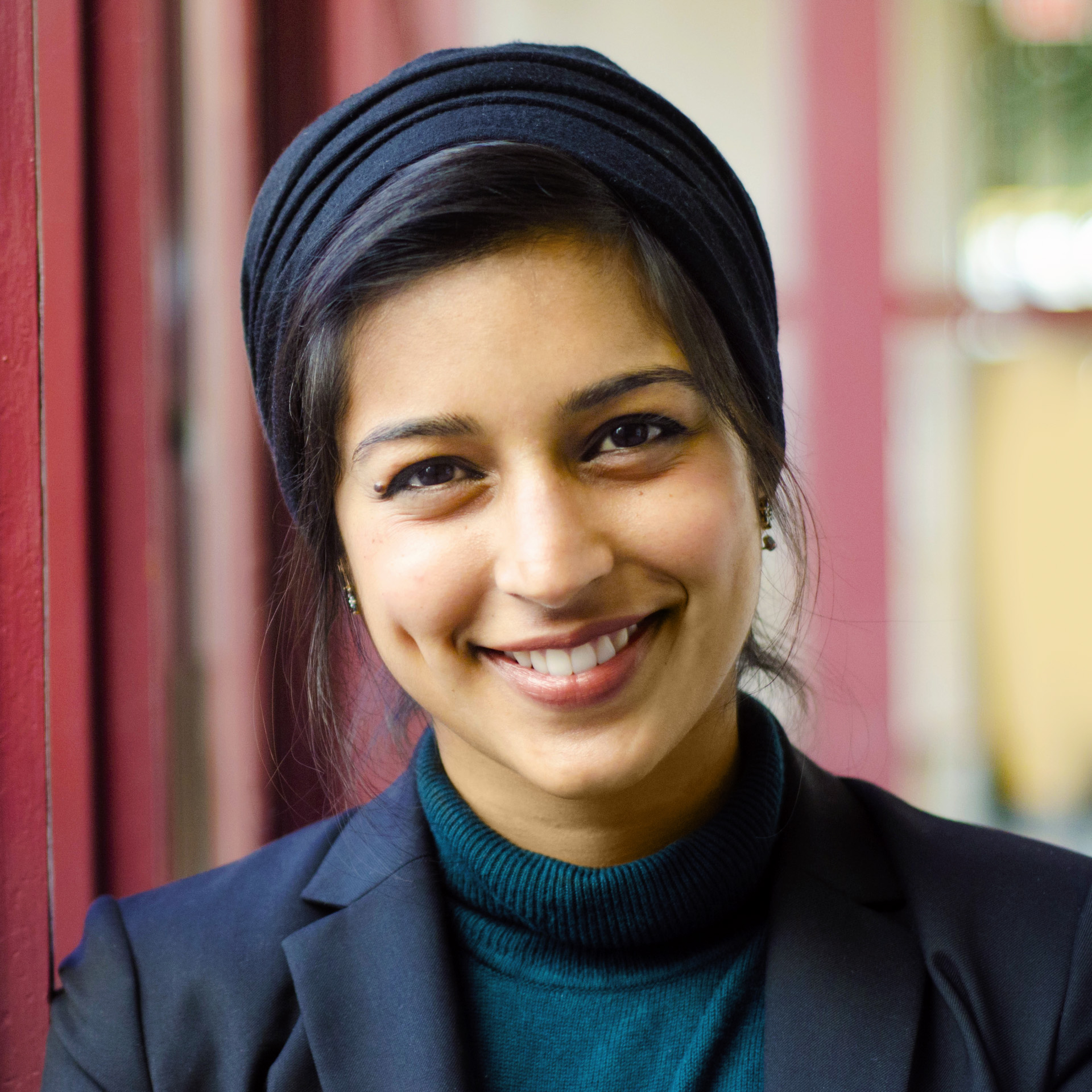Reshmaan Hussam ’09, PhD ’15, once dreamed of becoming a “psychohistorian” like the protagonist in Isaac Asimov’s Foundation novels who combines sociology, history, and statistics to save the world. Maybe, she thought, such a psychohistorian would be able to make sense of the stark and unnerving contrasts that marked her childhood living in suburban Virginia and visiting her parents’ families in Bangladesh. She remembers keenly the guilt and confusion she felt driving in Dhaka traffic with her family, watching barefoot children tapping the windows, begging for food and money. When she discovered development economics, with its focus on human behavior and experimental rigor, the field felt as close to Asimov’s psychohistory as she could get.
As an undergraduate majoring in economics at MIT, Hussam bolstered her natural interest in the liberal arts with skills in mathematics, experimental design, and data analysis. She took classes with Abhijit Banerjee and Esther Duflo, PhD ’99, the Nobel-winning founders of the Abdul Latif Jameel Poverty Action Lab (J-PAL), who introduced her to development economics and later served as her doctoral advisors. “There are dollar bills you can pick up all around the world,” she remembers Banerjee saying. “You needn’t go for the single million-dollar change; look for the little dollar bills.”

Hussam built her MIT dissertation around one such small-bill change: handwashing behaviors in West Bengal. Millions of dollars had already been poured into public health campaigns around handwashing, with little to show for it. So people were skeptical of Hussam’s proposal to design a simple soap dispenser that logs usage, fill it with foaming soap as an alternative to the rough bars used for laundry and house cleaning, place it somewhere visible in subjects’ homes, and use the data to motivate households to develop a handwashing habit.
But it worked. Simply giving households accessible and cheap soap and dispensers led to health benefits for children: within months, those in homes with dispensers grew taller and put on more weight than those in homes without them. One key, she says, was to “get the kids excited about engaging, which could then potentially transfer to the parents.”
Hussam considers her results a call “to think with more empathy and nuance about how people in the developing world make decisions around preventive health.” That compassionate approach is what ties her projects together—including her recent research exploring the meaning of work for Rohingya refugees who fled Myanmar to escape genocidal violence.
After joining the Harvard Business School faculty in 2017, Hussam spent four years working with colleagues on a project offering differing levels of cash aid and work to refugees in camps in Bangladesh. Ordinarily, she says, the camps are places of profound idleness. Even when NGO workers organize cooking or cultural activities, they are sparsely attended. While some might interpret this behavior as laziness, “what we found was no, they’re quite desperate to work,” Hussam says. “Working, as opposed to doing activities, seems to offer a sense of meaning.”
During the experiment, Hussam and her colleagues paid one group to engage in a surveying job over two months. A second group received the same pay without required labor. And a third control group received a much smaller amount in exchange for a brief survey. For male subjects, “we found that the cash alone—which is quite a lot of money given their destitution—barely improves psychosocial well-being,” she says. Instead, the key was work. Men who were paid for work were less depressed and less stressed and reported 22% fewer days of suicidal ideation than those who did not work. Female subjects, she notes, saw improvements in well-being from cash and work—seemingly empowered by the independence any kind of money provides.
Ultimately, “despite their poverty, material benefits alone might not be enough when people are in such mentally or emotionally desperate conditions,” Hussam concludes. Any attempts to help must come from a place of respect and shared humanity. She hopes her work will serve to humanize the millions caught in refugee crises around the world—people who have lost “a place to call home, people they can connect with, and a direction or purpose.”
Pairing economics with empathy to study life in the developing world - MIT Technology Review
Read More
No comments:
Post a Comment